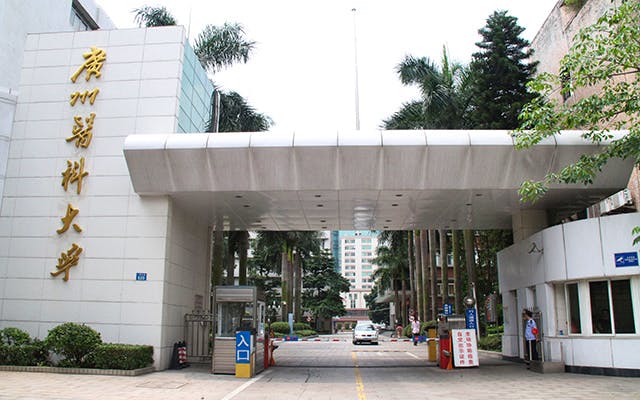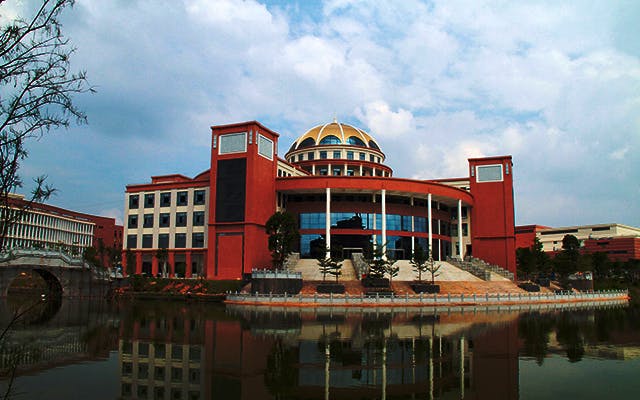GMU proudly presents 21 schools: School of Basic Medical Sciences, School of Public Health, School of Pharmaceutical Sciences, School of Stomatology, School of Nursing, GMU-GIBH Joint School of Life Sciences, Nanshan School, School of Mental Health, School of Pediatrics, School of Health Management, School of Marxism, School of International Education, School of General Practice & Continuing Education, Kingmed College of Laboratory Medicine, Graduate School, First Clinical School, Second Clinical School, Third Clinical School, Fifth Clinical School, Sixth Clinical School, The Clinical School of Guangzhou First People’s Hospital.
GMU has 7 directly affiliated hospitals and 10 non-directly affiliated hospitals, specializing in respiratory diseases, neuropathy, cardiovascular diseases, gynecology and obstetrics, cancer, dental care, rehabilitation, minimally invasive surgery, primary care and more.
Furthermore, GMU owns 21 research institutes, 1 national clinical medical center. In particular, The Sino-French Hoffmann Institute is a joint project with the 2011 Nobel Laureate Jules Hoffmann.
The clinical medicine discipline of GMU is ranked top 1% in the world for ESI rankings (Essential Science Indicators).GMU boasts 1 state key discipline and 9 state key clinical specialties and numerous provincial disciplines and specialties. Among them, respiratory medicine ranks 1st and ranks 6th for thoracic surgery in China. GMU places great emphasis on attracting talented faculty from home and abroad to develop the University. GMU has a strong faculty led by Prof. Zhong Nanshan, a member of Chinese Academy of Engineering. The faculty is comprised of 115 supervisors for PhD candidates, 1044 supervisors for master students.
GMU attaches importance to training professionals with innovative and hands-on skills. The University aspires to provide quality undergraduate and postgraduate programmes. GMU offers 20 full-time undergraduate programmes: Clinical Medicine, TCM and Western Medicine, Medical Imaging, Anesthesiology, Rehabilitation Therapy, Stomatology, Medical Laboratory Technology, Pharmaceutical Sciences, Nursing, Preventive Medicine, Applied Psychology, Clinical Pharmacy, Pediatrics, Psychiatry, Biomedical Engineering, Biotechnology, Health Administration, Marketing, Law, Food Quality and Safety.
In addition to its quality undergraduate programmes, GMU offers excellent M.Sc. programmes and Ph.D programmes. GMU also hosts a postdoctoral research station for clinical medicine. GMU started recruiting international students for the MBBS programme (Bachelor of Medicine and Bachelor of Surgery) in English in 2010. Today, we have enrolled 185 international students from 19 countries.
As a university with global vision, GMU has carried out extensive collaborations in research, teaching, and training with renowned universities such as University of Edinburgh, University of Strasbourg, University of Birmingham, University of Wolverhampton, University of Toronto, California State University Northridge, University of South Carolina, Harvard Medical School, San Francisco State University, Arkansas State University, Columbia University, Maryland University, Johns Hopkins University, Yonsei University College of Dentistry, National University of Singapore, University of Queensland, Queensland University of Technology, and Massey University, Hong Kong University, Chinese University of Hong Kong, The Hong Kong Polytechnic University, Taiwan University, Chung Shan Medical University, I-Shou University, Kiang Wu Nursing College of Macau, City University of Macau. A substantial number of experts from prestigious universities home and abroad are engaged with the University as adjunct professors, distinguished professors and visiting professors.
For six decades, Guangzhou Medical University has undertaken substantial progress in medical education, research and health care. In the future, GMU will continue to advance the university with employing top faculty, developing quality disciplines, and delivering signature programmes. GMU is committed to making greater efforts in education, scientific research, health care and cultural legacy innovation for the future of China and the world.
Location
Guangzhou is the capital of Guangdong Province, is the third biggest city in China after Beijing and Shanghai with a population of more than 12 million. Founded in 214 BC, the city has been a springboard for trading, cultural exchanges, many revolutions, and reforms, making it an unavoidable stopover to understand what shapes modern China.
Living in University
Food: GMU has a student restaurant (food court).
Sports: School has a gymnasium and various playgrounds, where students can play football, basketball, and other sports.
Internet: Internet service is available at the university library and international student dormitory.
Shopping: School has supermarkets and stores.
Show less 



